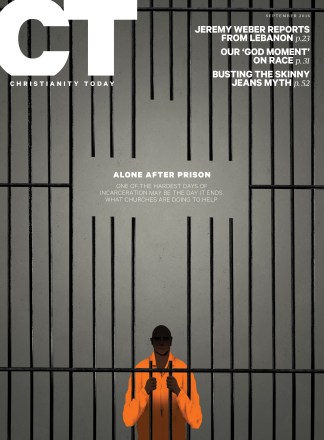The first words of Genesis 1 highlight how the eternal God first expressed himself as Creator. “In the beginning” establishes a line of demarcation between the eternal One and his finite creation. He anchored time to a fixed point “in the beginning” in order to unfold the rest of his creation. Indeed, the notion of time itself speaks of limits. Time can be measured, a distinct contrast with the limitlessness of God.
Each of his actions within each movement of creation ends with a time stamp: “There was evening and morning, the first day . . . the second day . . .” through to the description of the creation of Adam on the sixth day. Even on the final day, the holy rest had a beginning, middle, and end.
The way in which time was lived and measured by the ancient Jews was extremely countercultural. Every other ancient civilization (such as the Sumerians and Egyptians) saw time cycling continually in place, without a larger purpose. The human race began to talk about time differently when God called Abram to leave Ur by faith and head to an unknown land God would show him. Time became a journey, not a wheel.
If you traced this journey on a map, it would form a ragged loop. But this loop didn’t represent the meaningless, repetitious, impersonal cycle of the pagan. It had a distinct beginning and a specific, holy destination.
The calendar used by a people shapes their culture. Calendars in all cultures mark big events and measure ordinary days as well. Over time, the Gregorian calendar became the de facto civil calendar of the West, and today it is the primary tool by which much of the world plans its business, date-stamps documents, and schedules work.
Our calendar tells us a new civil year begins on January 1. However, we also have an “academic year,” beginning in late August or early September. The academic year was formed by agricultural rhythms—at one time, students were only free to head into the classroom after the yearly harvest took place, and they were only free to study until they were needed to help plant the next spring’s crops.
Many of us treat calendars like giant empty cabinets awaiting the details of our lives. We stock them with containers of appointments, boxes crammed full of work time, and stacks of recreational activity, acting in the process as though we’re captains of our calendars. But this approach most closely resembles that ancient, cyclical calendar in which there is no meaning in our past or future, only in the acquisitions and achievements of our present. There is no story, no journey, associated with our civil calendar. We have to look elsewhere for that.
When we pray, “Teach us to number our days, that we may gain a heart of wisdom” (Ps. 90:12), we are not asking for a tidier organizational system. Wisdom is not a clever squishing of time to fit daily Bible reading into our schedule or have better attendance at weekly worship services. The chosen people discovered more than three millennia ago that when God called them to number their days, it wasn’t about rearranging their calendars, but about reorienting their lives—heart, soul, mind, and strength—as they followed him like pilgrims through time.
Taken from Moments & Days copyright © 2016 by Michelle Van Loon. Used by permission of NavPress. All rights reserved. Represented by Tyndale House publishers.











